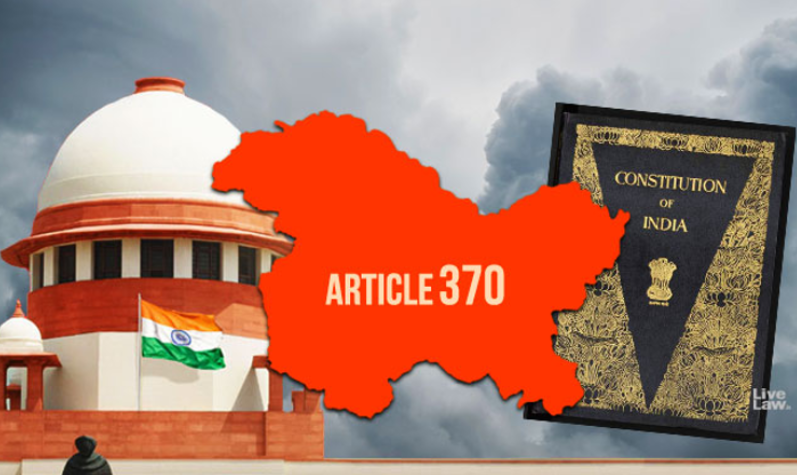For J&K, Better Days Lie Ahead (GS Paper 3, Internal Security)

Introduction:
- As we approach the fifth anniversary of the abrogation of Article 370, it's crucial to reflect on the significant changes that have taken place in Jammu and Kashmir (J&K).
- Since 1989, thousands of bravehearts, including 1,608 J&K Police officers and 511 CRPF officers, have laid down their lives fighting terrorism.
- The notable decline in terrorism in the Valley since 2019 serves as a fitting tribute to these martyrs and underscores the potential for lasting peace in the region.
Abrogation of Article 370: A Step Towards Unified Governance
- The abrogation of Article 370 marks a significant shift in the governance of J&K.
- The special constitutional status previously allowed a divergence between the actions and words of J&K politicians, perpetuating oligopolistic, dynastic, and stale politics.
- The removal of this article addresses Syama Prasad Mookerjee’s 1950s call for "Ek desh me do vidhan, do pradhan, do nishan nahin chalenge" (One nation cannot accept two constitutions, two heads of state, and two flags).
- Unified Elections: Future elections in J&K will now be conducted under the Indian Constitution, introducing new electoral thresholds, ballot structures, and contexts.
- New Opportunities: This change creates opportunities for new politicians and parties to participate in democracy, converting conflicts into trade-offs through a fresh slate of ideas that blunt passions, create interests, and forge compromises.
Military Strategy and Cross-Border Terrorism
- The belief that cross-border military strikes by India were impossible after Pakistan’s nuclear tests was shattered by the Uri and Pulwama responses.
- These strikes were not acts of war-mongering but a recognition that Pakistan’s terror factory required new calculations.
- The lack of consequences for previous attacks led to more significant ones like those on the Indian Parliament in 2001 and Mumbai in 2008.
- These actions established new rules and consequences for internal security strategy.
The Global Impact of Radical Islam and Counterterrorism Efforts
- The narrative of "jihad" was initially useful for the United States in drafting Mujahideen to fight the USSR in Afghanistan.
- However, the CIA’s ignorance of the myth of Bhasmasur (the demon who turns on its creator) meant that radical Islamists would eventually turn their attention to the West.
- Early signs of this were evident in the 1990s, but it took the 9/11 attacks for the US to recognize the dangers of radical Islam and galvanize global action against terrorism.
- India's position on cross-border terrorism is no longer isolated, making Pakistan’s strategy and actions untenable.
Pakistan’s Diminishing Geopolitical Importance
- Pakistan’s geopolitical significance, rooted in Cold War defense treaties, US-China reconciliation, and Afghan Mujahideen support, has greatly diminished since the 9/11 attacks and the evolving US-China rivalry.
- Internal anger is rising against Pakistan’s economically incompetent garrison state, which weaponizes Islam and sabotages mass prosperity.
- With its per capita GDP lower than Bangladesh’s and total GDP lower than Maharashtra’s, Pakistan faces significant internal and external weaknesses.
- Call for Change: The abrogation of Article 370 strengthens the case for Pakistan’s public to choose ittihad (friendship) over military-sponsored jihad.
- Declining Terror Capacity: Although the path to a more normal democracy in Pakistan is unclear, its declining ability to perpetrate acts of terror is evident.
India’s Path to Prosperity and Peace
- Since 1947, India has created the world’s largest democracy but struggled to deliver mass prosperity.
- This is now changing with a massive renovation of India’s intellectual, security, financial, diplomatic, investment, welfare, and economic infrastructure.
- India is now the fifth-largest economy and will soon be third after China and the US.
- The significant export of software compared to Saudi Arabia’s oil exports gives India’s military a massive edge in a digital world where the distinction between military and civilian technology is eroding.
- The most significant change is a new political tone from the top: zero tolerance for terrorism and a vision for India to become a developed country by its 100th anniversary of independence.
Conclusion:
- The decline in terrorism in J&K since the abrogation of Article 370 signifies a positive shift towards peace and development in the region.
- The unified governance structure, robust military strategies, and global counterterrorism efforts have played a crucial role in this transformation.
- As India continues its journey towards prosperity and peace, it is essential to build on these achievements, fostering a stable and secure environment for the people of J&K.
- The ultimate tribute to the martyrs who fought against terrorism is a future where their sacrifices lead to lasting peace and prosperity in the region.


